Search
Research
DYRK1A regulates B cell acute lymphoblastic leukemia through phosphorylation of FOXO1 and STAT3DYRK1A is a serine/threonine kinase encoded on human chromosome 21 (HSA21) that has been implicated in several pathologies of Down syndrome (DS), including cognitive deficits and Alzheimer's disease. Although children with DS are predisposed to developing leukemia, especially B cell acute lymphoblastic leukemia (B-ALL), the HSA21 genes that contribute to malignancies remain largely undefined. Here, we report that DYRK1A is overexpressed and required for B-ALL. Genetic and pharmacologic inhibition of DYRK1A decreased leukemic cell expansion and suppressed B-ALL development in vitro and in vivo.
Research
Fine-Tuning the Tumour Microenvironment: Current Perspectives on the Mechanisms of Tumour ImmunosuppressionImmunotherapy has revolutionised the treatment of cancers by harnessing the power of the immune system to eradicate malignant tissue. However, it is well recognised that some cancers are highly resistant to these therapies, which is in part attributed to the immunosuppressive landscape of the tumour microenvironment (TME). The contexture of the TME is highly heterogeneous and contains a complex architecture of immune, stromal, vascular and tumour cells in addition to acellular components such as the extracellular matrix. While understanding the dynamics of the TME has been instrumental in predicting durable responses to immunotherapy and developing new treatment strategies, recent evidence challenges the fundamental paradigms of how tumours can effectively subvert immunosurveillance. Here, we discuss the various immunosuppressive features of the TME and how fine-tuning these mechanisms, rather than ablating them completely, may result in a more comprehensive and balanced anti-tumour response.
Research
The bone marrow microenvironment of pre-B acute lymphoblastic leukemia at single-cell resolutionThe bone marrow microenvironment (BMM) plays a key role in leukemia progression, but its molecular complexity in pre-B cell acute lymphoblastic leukemia (B-ALL), the most common cancer in children, remains poorly understood. To gain further insight, we used single-cell RNA sequencing to characterize the kinetics of the murine BMM during B-ALL progression.
Research
Aging of preleukemic thymocytes drives CpG island hypermethylation in T-cell acute lymphoblastic leukemiaCancer cells display DNA hypermethylation at specific CpG islands in comparison to their normal healthy counterparts, but the mechanism that drives this so-called CpG island methylator phenotype (CIMP) remains poorly understood. Here, we show that CpG island methylation in human T-cell acute lymphoblastic leukemia (T-ALL) mainly occurs at promoters of Polycomb Repressor Complex 2 (PRC2) target genes that are not expressed in normal or malignant T-cells and which display a reciprocal association with H3K27me3 binding.
Research
Constitutive Activation of RAS/MAPK Pathway Cooperates with Trisomy 21 and Is Therapeutically Exploitable in Down Syndrome B-cell LeukemiaChildren with Down syndrome (constitutive trisomy 21) that develop acute lymphoblastic leukemia (DS-ALL) have a 3-fold increased likelihood of treatment-related mortality coupled with a higher cumulative incidence of relapse, compared with other children with B-cell acute lymphoblastic leukemia (B-ALL).
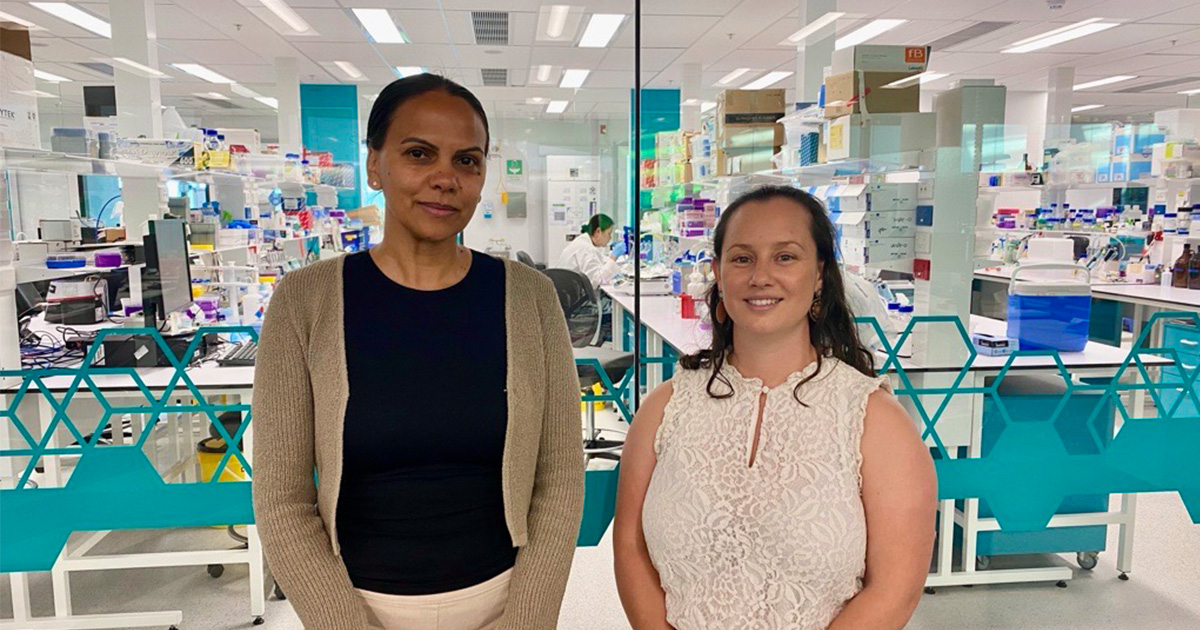
News & Events
Setting the agenda: Urgent priorities to close the childhood cancer gap for Aboriginal and Torres Strait Islander childrenA review led by the First Nations Childhood Cancer team at The Kids Research Institute Australia has highlighted the urgent need for Indigenous-specific studies focused on cancer outcomes, survivorship and equity.
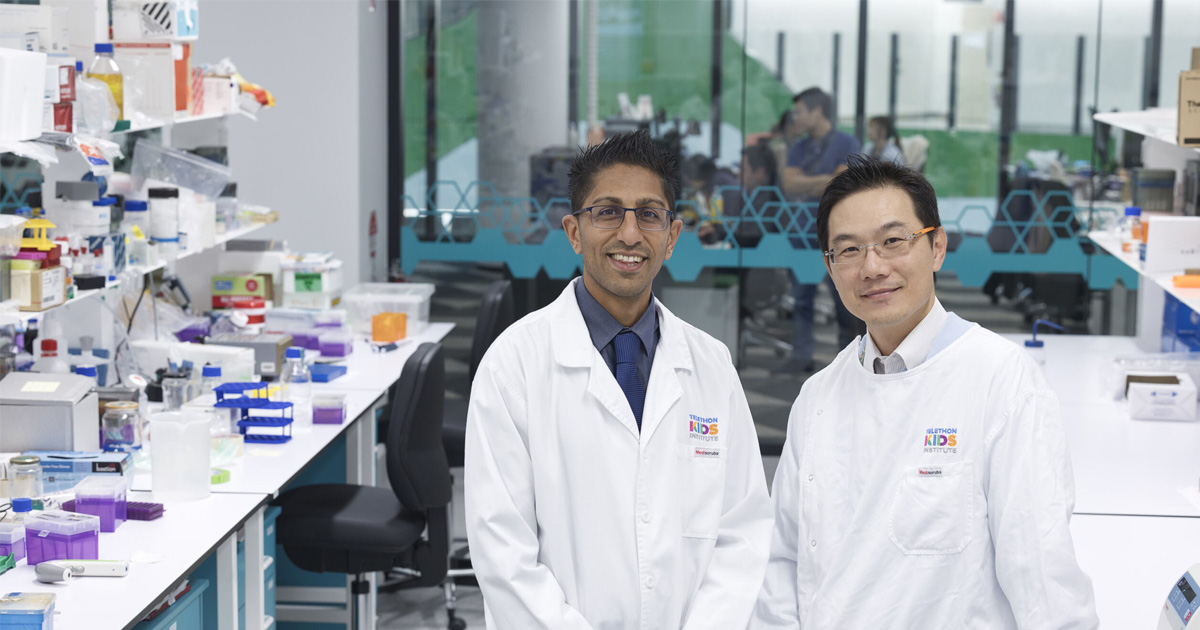
News & Events
New study uncovers dual benefit of bone-protecting treatment for childhood leukaemiaA groundbreaking study from cancer researchers at The Kids Research Institute Australia has identified a promising new therapeutic strategy for children battling the most common childhood cancer – B-cell acute lymphoblastic leukaemia.
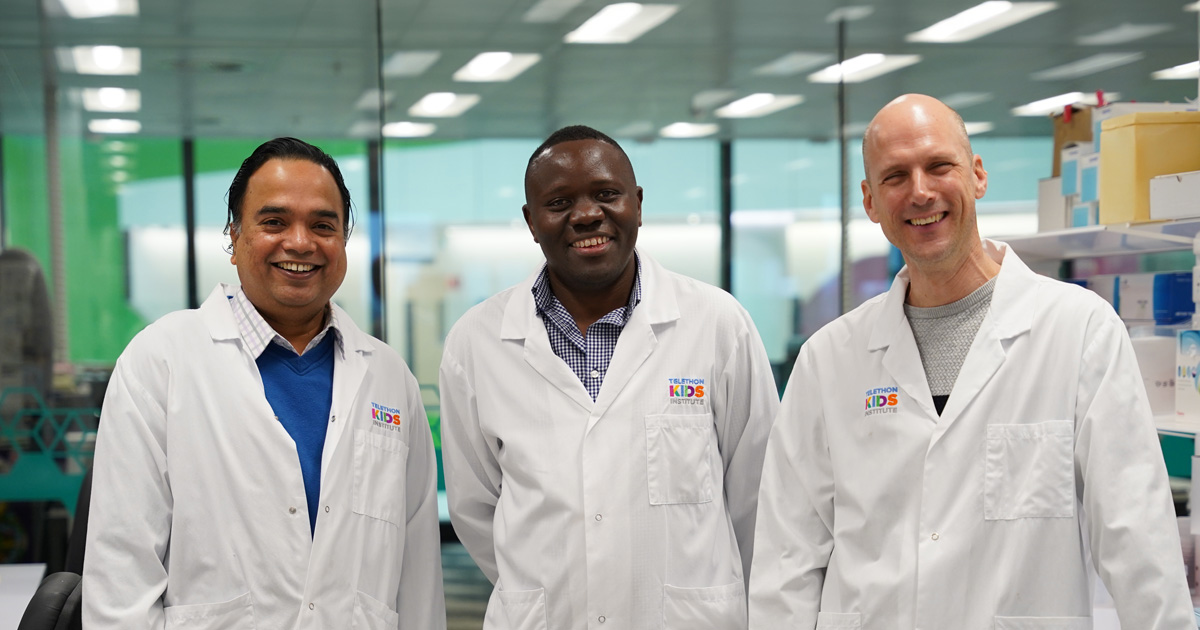
News & Events
Lab results confirm promise of new immunotherapy gel for kids cancerNewly published research from The Kids Research Institute Australia and The University of Western Australia has found a gel applied during surgery to treat sarcoma tumours is both safe and highly effective at preventing the cancer from growing back.
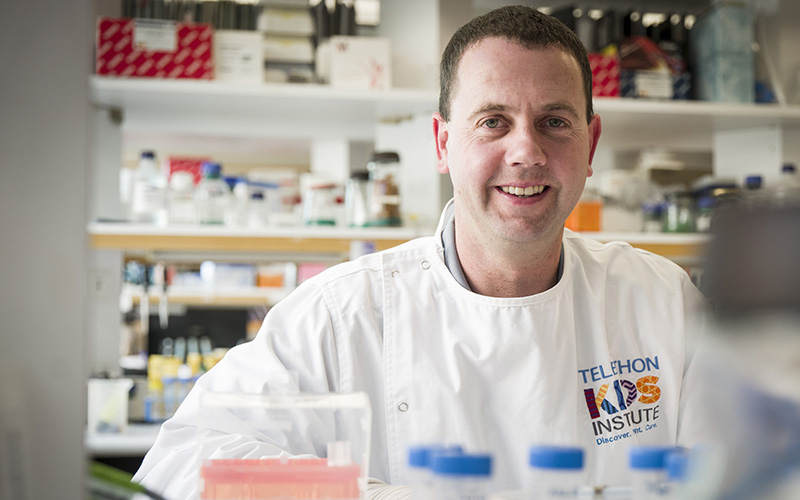
News & Events
The Kids Cancer Researcher wins prestigious Cancer Council WA awardThe Kids Research Institute Australia cancer researcher, Dr Jason Waithman, has been named Cancer Council WA’s 2021 Cancer Researcher of the Year.
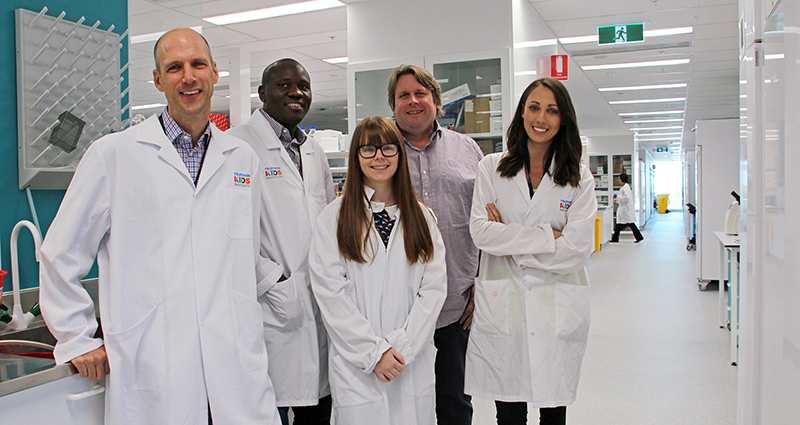
This year for Childhood Cancer Awareness Month, we got to know the sarcoma research team at Telethon Kids.
